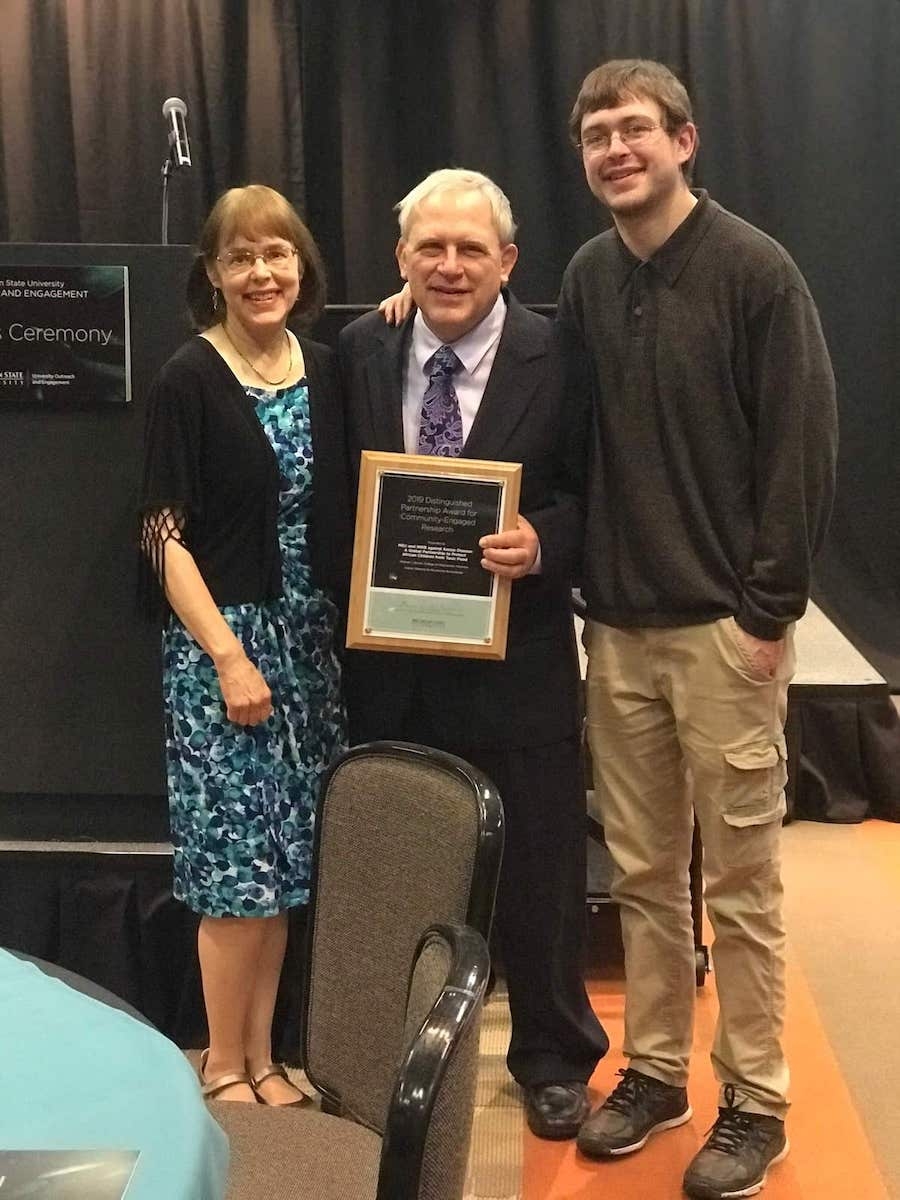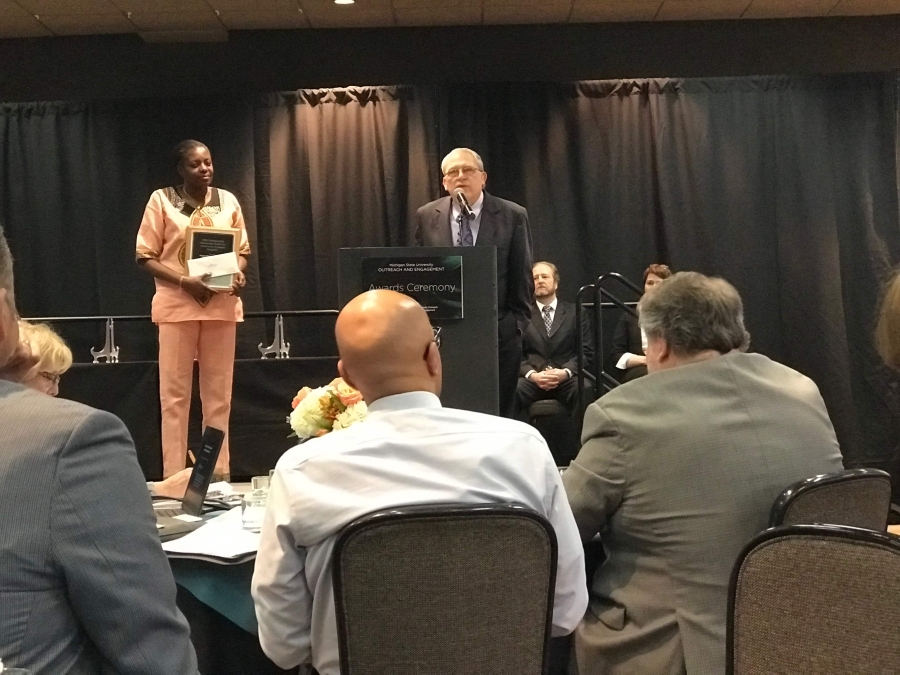Dr. Boivin and Institut National de Recherche Biomédicale are the co-recipients of the 2018-19 Community Engagement Scholarship Award
Posted: May 23, 2025
The Community Engagement Scholarship Award Committee recognized the scientific and humanitarian contributions of Michael Boivin, a professor in the College of Osteopathic Medicine at Michigan State University and the National Institute of Biomedical Research, or IRB. Together they have created a global partnership, uniting gifted health scientists from across the world to protect Congolese children and their communities from the toxic effects of cyanide in their food supply.
Working with Desiré Tshala-Katumbay and his colleagues at the IRB, Dr. Boivin contributed to a major breakthrough in understanding the effects of konzo disease on the brain. Konzo, a sudden-onset and incurable paralysis of the legs, is associated with poor rural people in Africa. It occurs when children with a protein-deficient diet eat flour made from insufficiently processed bitter cassava, a plant and a staple food in the region, as well as for 600 million people worldwide, which contains cyanide. If the children eat enough cyanide, the nerves that control their legs become damaged, leading to paralysis.


The MSU-IRB study teams have demonstrated that it is possible to dramatically decrease new cases of konzo by training Congolese caregivers of young children to implement a simple method, called the Wetting Method, of carefully soaking cassava in water and then drying it, decreasing its cyanide levels and reducing the risk of nerve toxicity from consuming it. The National Institutes of Health, or NIH, is a primary sponsor of this ongoing work.